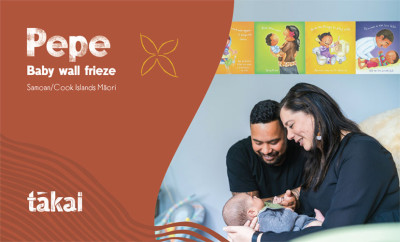
Blessings from Tagaloa – Samoan language and pregnancy
Understanding the Samoan language helps to better understand Samoan culture and values related to pregnancy and childbirth.
Pregnancy and childbirth figure strongly in the indigenous religion of Samoan people. The sacredness of pregnancy and childbirth portrays the need for the baby to be well protected and cared for from conception to birth.
The terms used and rituals employed reflect the spiritual relationship between the child and the cosmos, the child and the land, the child and the older generation (tua’a, matua) or parents (matua) , and the child and itself.
Fa'aaloalo and ava
Sustaining these relationships depends on the degree to which one party respects (fa'aaloalo) and honours (ava) the human dignity and integrity of the other party.
Samoan wisdom calls this type of mutual respect and reciprocity between people the ava fatafata, fatafata means one’s chest, or the va fealoaloa’i , meaning the space for face to face.
Without this mutual acceptance of reciprocal honour and respect, human relationships will sever.
Proverbs
These two proverbs are often used in relation to parenting.
O au o matua fanau.
This proverb likens children to an internal organ, the liver, a vital part of a human being’s system. The word au means the liver of an animal or human being. Just as a person needs to protect and care for their liver, so parents need to care for and protect their children.
O fanau a manu e fafaga i fuga o laau, a o tama a tagata e fafaga i upu.
This proverb recommends parents raise their children with words ( upu ). This implies teaching through face to face conversation, not through physical discipline. The comparison to feeding young birds with nectar suggests teaching children with warm words, encouraging the development of wisdom and strength.












